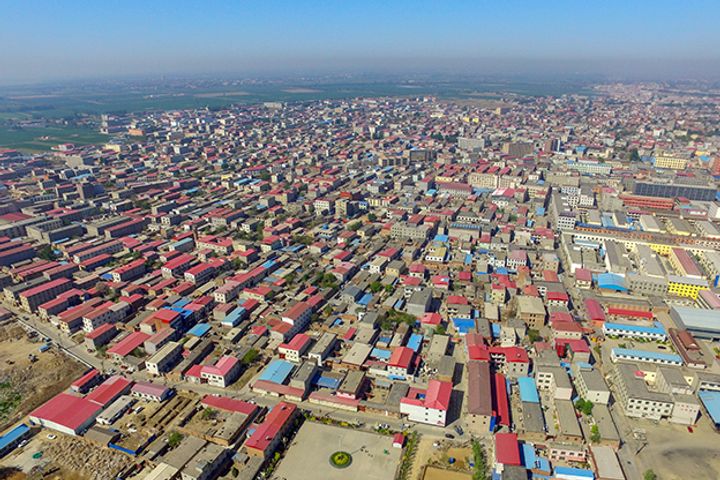 Beijing Plans to Form Cross-Border E-Commerce Pilot Zone in Xiong'an New Area
Beijing Plans to Form Cross-Border E-Commerce Pilot Zone in Xiong'an New Area (Yicai Global) Jan. 25 -- China's central administration has proposed to set up a cross-border online shopping pilot zone in Xiong'an New Area, the urban belt surrounding Beijing, along with a lowered threshold for foreign companies to access the country.
The government supports the establishment of a global digital trading platform in Xiong'an New Area so as to offer convenience for cross-border payments, a document that the Central Committee of the Communist Party and the State Council jointly released yesterday shows. The two authorities are the top administrative bodies in China.
President Xi Jinping rebranded the large wasteland about 100 kilometers southwest from Beijing with the fresh name of Xiong'an New Area in April 2017. The central government made a 2018-2035 master plan to turn the area into a green low-rise hub akin to Washington or Canberra to attract some of the residents and institutions of the overcrowded Beijing to settle in.
The administration promotes the establishment of foreign-owned financial companies or joint ventures with local partners in Xiong'an, and will ease or cancel limitations on equity ratios as soon as possible when conditions permit, yesterday's document added.
The authorities will allow companies that specialize in investing in overseas equities to set up shop in the new city. They will assist investors that meet the conditions to establish foreign equity funds. The administration will innovate in terms of how to manage local and foreign currency accounts. It will permit multinational corporations' headquarters located in Xiong'an to settle transactions both in Chinese yuan and foreign currencies.
Regulators will also loosen the control of foreign exchanges to offer easier access for foreign investors to invest in Xiong'an and to accelerate the internationalization of the Chinese yuan.
The government supports international authorities such as arbitration, certification and accreditation bodies to settle in the area to build mechanisms that can solve business disputes. Supportive policies involving public finance and technologies will be equally available for domestic and foreign-funded firms.
Editor: Emmi Laine